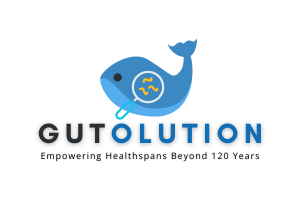As the global population continues to age, the prevalence of health challenges among the elderly is increasing. These challenges include cognitive decline, gastrointestinal inflammation, and musculoskeletal issues. Addressing these concerns has become critical in the evolving healthcare landscape. Personalized probiotics offer a promising solution to revolutionize how we approach age-related health concerns.
The Promise of Personalized Probiotics
Probiotics are live microorganisms that provide health benefits when administered in adequate amounts. Personalized probiotics take this a step further by tailoring formulations to the specific needs of individuals. This approach leverages an individual's unique microbial profile to address imbalances and modulate the gut-immune system, advancing research and innovation in tailored probiotics for the elderly.
Role of the Gut Microbiome
The gut microbiome, representing the collective genomes of microbes in the gastrointestinal tract, plays a pivotal role in overall health. It is responsible for:
- Digestion: Breaking down food and absorbing nutrients.
- Production of Beneficial Metabolites: Generating short-chain fatty acids and vitamins essential for health.
- Immune System Modulation: Helping the body fight infections and reducing inflammation.
- Regulation of the Gut-Brain Axis: Influencing brain function and behavior through microbial interactions.
Disruptions in the gut microbiome can lead to a wide range of health issues, including cognitive decline. Maintaining a balanced gut microbiome is therefore crucial for overall well-being.
The Gut-Brain Axis
The gut-brain axis is a bidirectional communication system between the gastrointestinal tract and the brain. It involves:
- Direct Neural Interactions: Via the vagus nerve.
- Indirect Mechanisms: Involving cytokines and neuroendocrine hormones.
This connection is crucial for cognitive function and neurological health, especially in the aging population. The gut-brain axis influences mood, behavior, and cognitive functions, highlighting the importance of gut health in maintaining mental acuity in older adults.
Probiotics and Cognitive Resilience
Probiotics can complement conventional therapies for age-related conditions. They can be consumed through food, beverages, or dietary supplements. Key functions of probiotics for the elderly include:
- Regulating a Healthy Gut Microbiome: Maintaining microbial balance and diversity.
- Acting as Antimicrobial Agents: Preventing the growth of harmful pathogens.
- Producing Neurotransmitters: Such as serotonin and GABA, which are crucial for mood regulation and cognitive functions.
- Supporting Cognitive Function: Through the modulation of the gut-brain axis.
Research has shown that probiotics can help improve memory, reduce symptoms of anxiety and depression, and enhance overall cognitive performance. By modulating the gut microbiota, probiotics influence the production of neurotransmitters and other molecules that affect brain function. This can lead to improved mood, better stress management, and enhanced cognitive resilience.
Implementing Personalized Probiotic Solutions
Personalized probiotics represent a promising solution for common gut health challenges in the elderly. By taking an individualized approach, targeted probiotic therapy can significantly impact overall well-being. This initiative enhances the efficacy of probiotics by addressing specific needs and imbalances of the aging gut microbiome. The benefits of personalized probiotics include:
- Tailored Interventions: Customized probiotic formulations based on individual gut profiles.
- Enhanced Efficacy: More effective outcomes through precise targeting of specific gut imbalances.
- Improved Quality of Life: Better management of age-related health issues, leading to enhanced vitality and well-being.
Conclusion
Personalized probiotics present a promising approach to support healthy aging by optimizing gut function and enhancing overall vitality and quality of life in older adults. By addressing the unique needs of the elderly, personalized probiotic solutions can contribute to maintaining cognitive resilience and overall health. Integrating cutting-edge technology and personalized care advances our understanding and management of gut health and cognitive function in the aging population. Continued research and innovation in this field are essential for developing effective strategies to improve the well-being of the elderly.


 Whatsapp us!
Whatsapp us!